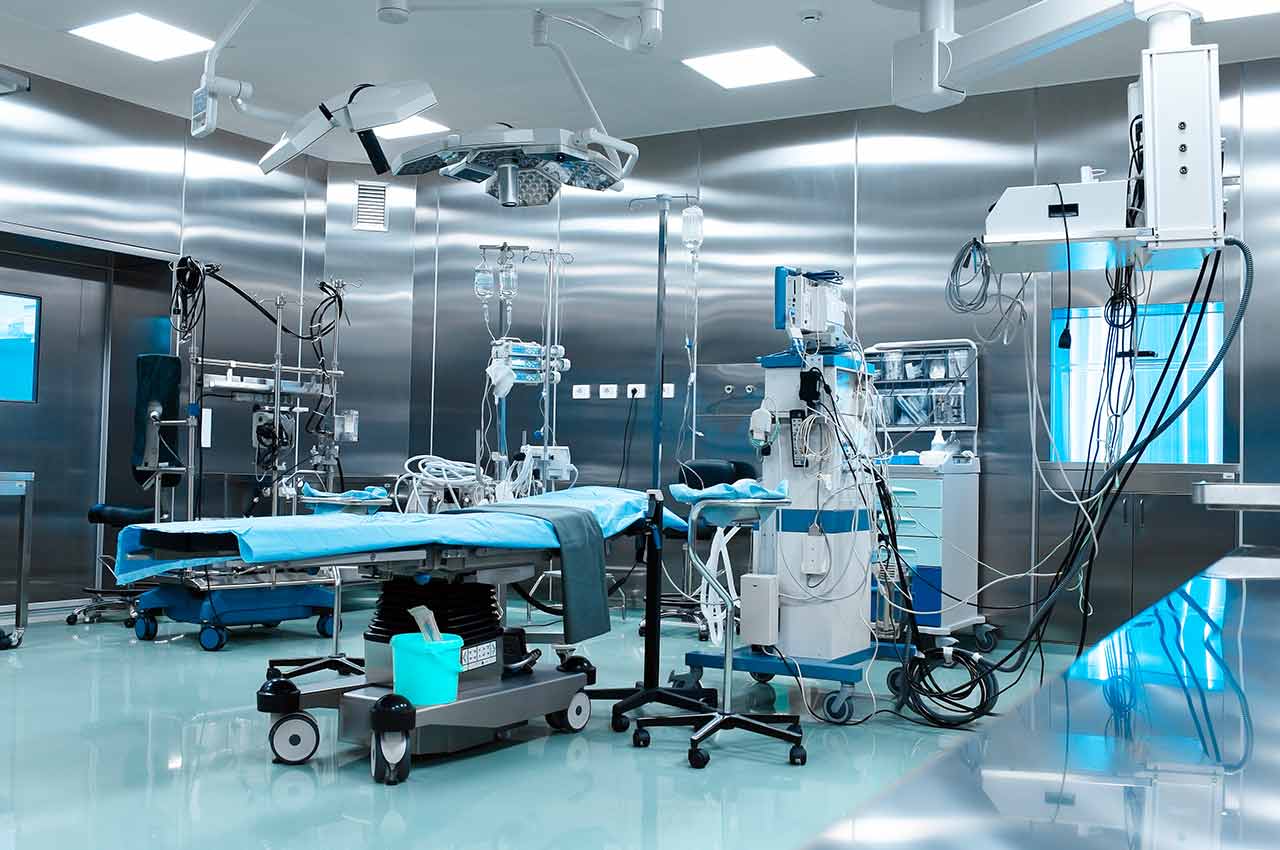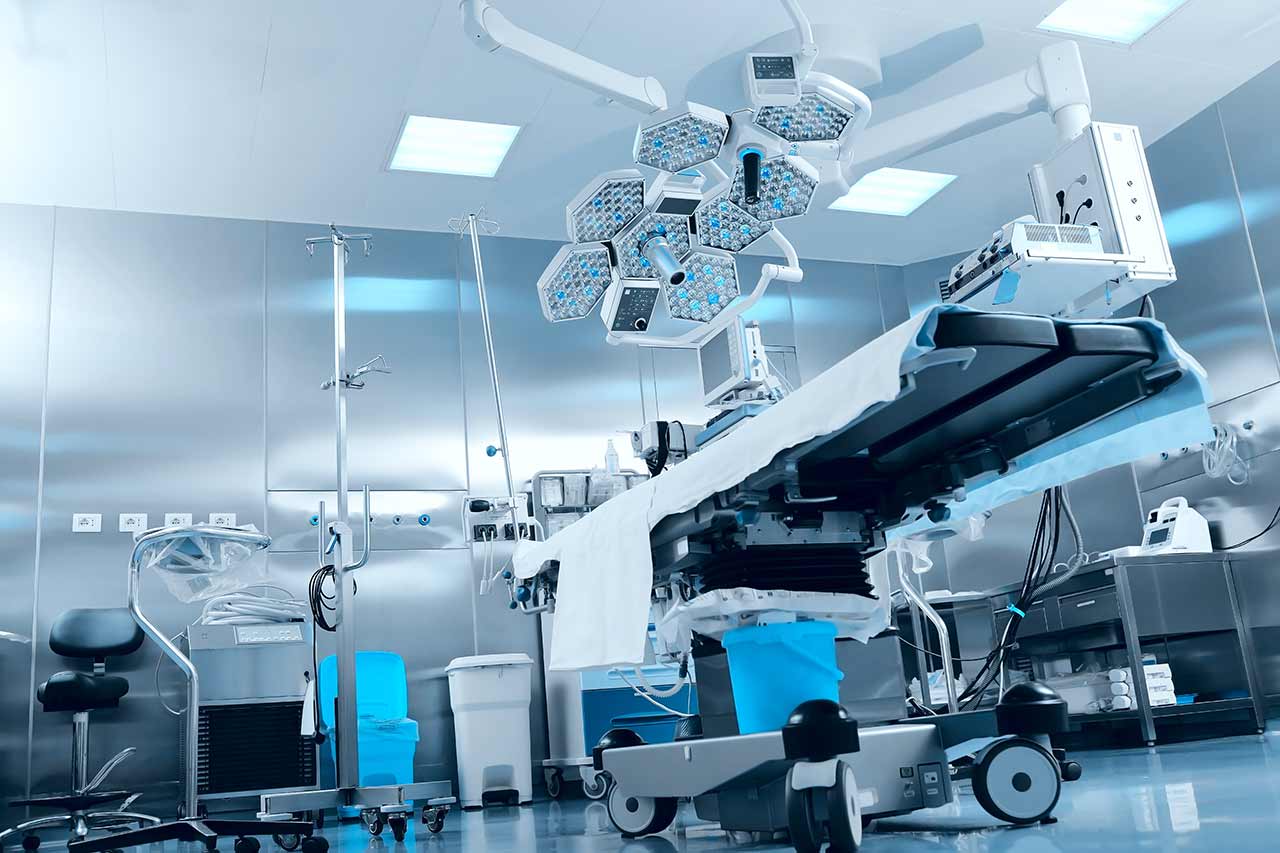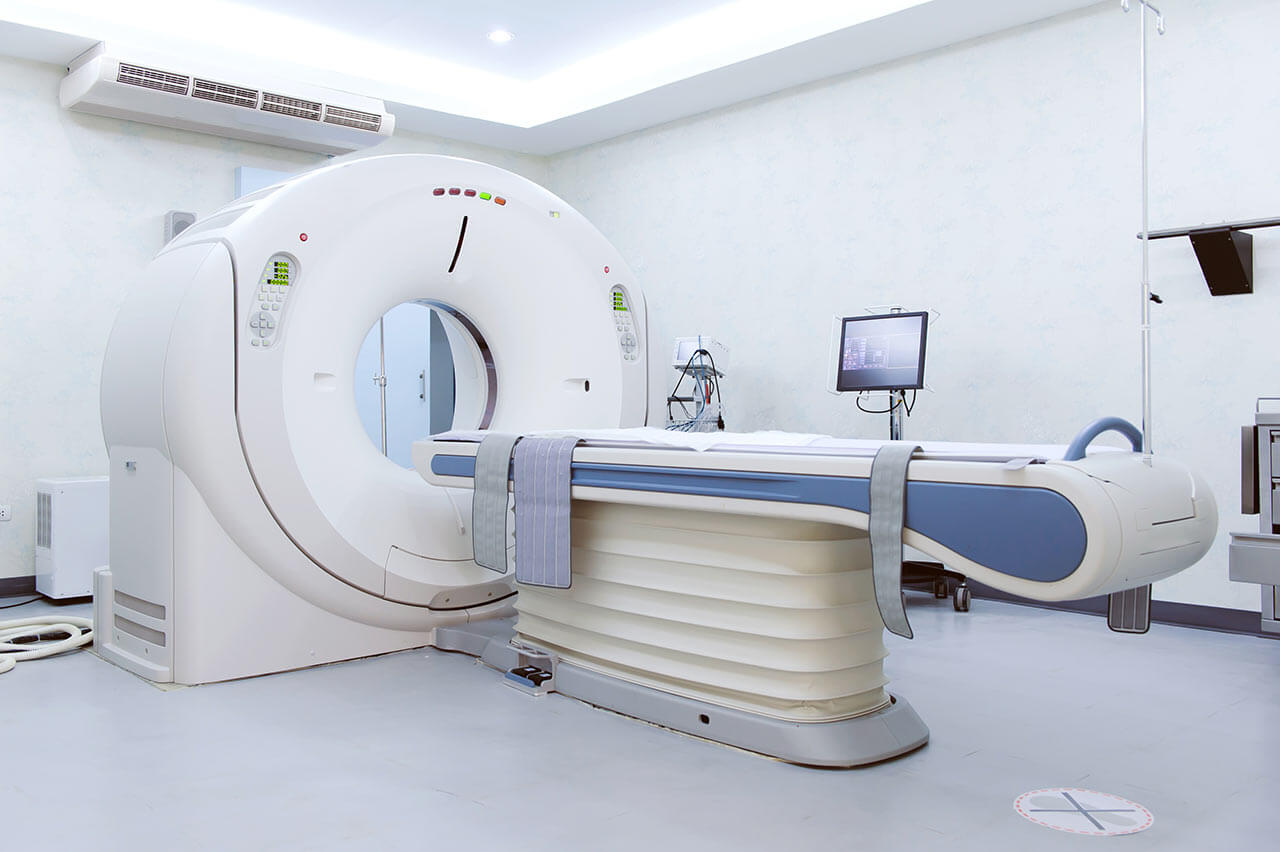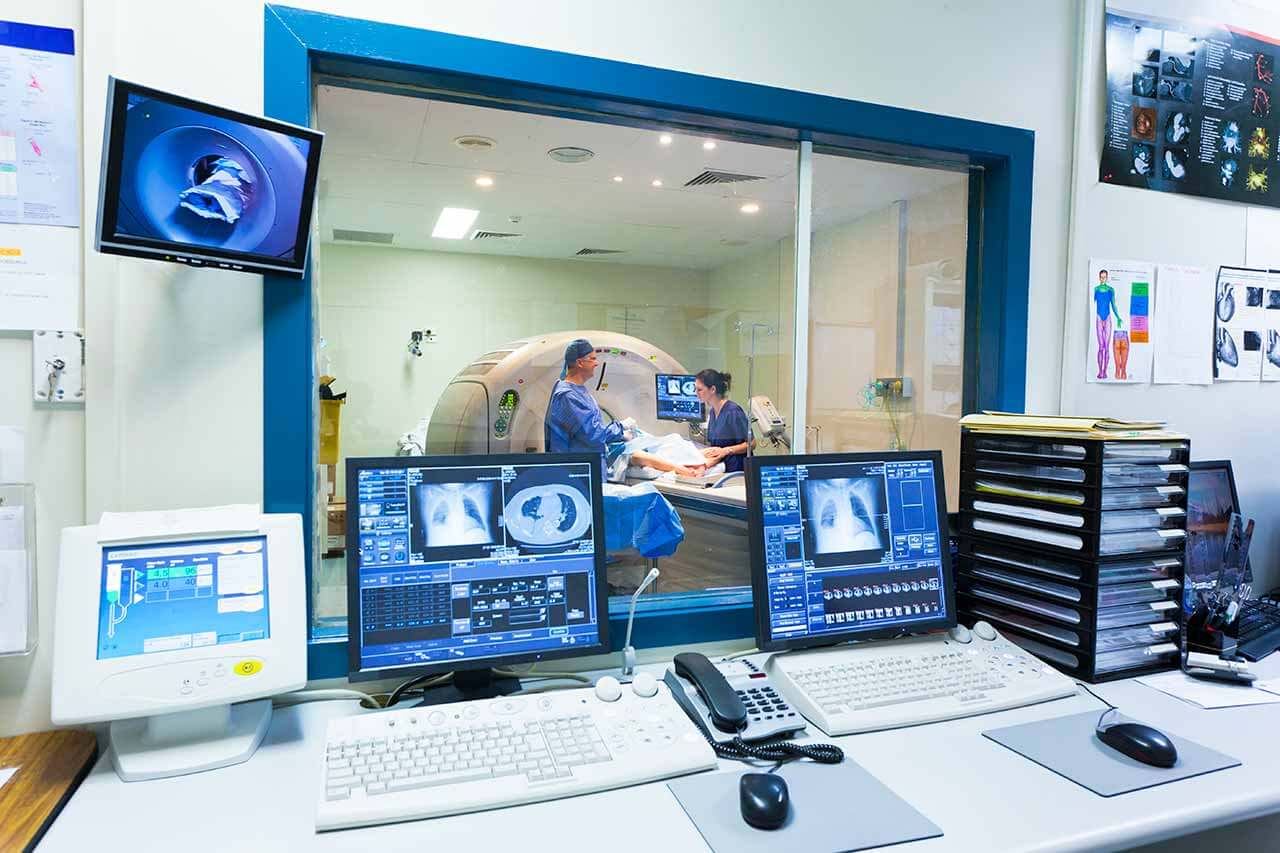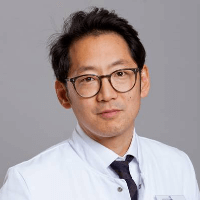
The program includes:
- Initial presentation in the clinic
- clinical history taking
- physical examination
- review of medical records
- laboratory tests:
- complete blood count
- general urine analysis
- biochemical analysis of blood
- indicators of inflammation
- indicators blood coagulation
- ultrasound of the urogenital system
- preoperative care
- sclerotherapy
- symptomatic treatment
- control examinations
- cost of essential medicines and materials
- nursing services
- full hospital accommodation
- explanation of future recommendations
Required documents
- Medical records
- Ultrasound scan (if available)
Service
You may also book:
 BookingHealth Price from:
BookingHealth Price from:
About the department
According to the Focus magazine, the Department of Urology at the University Hospital Frankfurt am Main ranks among the top German medical institutions specializing in prostate cancer treatment!
The department offers the full range of high-precision diagnostic studies and effective therapeutic options for men with diseases of the genitourinary system. The doctors of the department specialize in the treatment of prostate cancer, benign prostatic hyperplasia, kidney, testicular cancers, urolithiasis, erectile dysfunction and urinary incontinence. There are also excellent qualifications in the field of reconstructive urology.
The department is headed by Prof. Dr. med. Felix Kyoung-Hwan Chun, who has 20 years of clinical experience gained at German university hospitals. The doctor is known for his exceptional professional skills in treating prostate cancer, laser therapy for benign prostatic hyperplasia, and urethral reconstructive surgery. Prof. Felix Kyoung-Hwan Chun is also proud of his successful experience in da Vinci robotic surgery. The specialist is the winner of numerous awards from the European Association of Urology (EAU) and the German Society of Urology (DGU). The number of the doctor's publications in scientific printed and Internet resources is also impressive, and in total there are more than 400 publications.
The department has advanced infrastructure, excellent diagnostic equipment and state-of-the-art operating rooms. It is common practice for the department’s specialists to perform minimally invasive interventions using the da Vinci surgical system. Such operations are characterized by minimal trauma, small blood loss, low level of postoperative complications, and also provide a short period of hospitalization and speedy recovery of the patient.
It is worth noting that the department’s priority focus is prostate cancer treatment. If diagnosed with this pathology, the doctor will conduct a comprehensive consultation with the patient, during which he will inform him about the diagnosis, the stage of the disease, treatment options and the risks they may entail. The doctor necessarily takes into account all the individual wishes of the patient.
Depending on the clinical indications, the therapeutic spectrum covers open surgery, minimally invasive interventions and robotic surgery (da Vinci robot). Thanks to innovative treatment methods, the surgeons of the department manage to preserve potency and men's health. Also, the doctors of the department have at their disposal well developed effective treatment regimens for advanced prostate cancer. In elderly patients, the doctors often use an "active monitoring" technique, and in the case of slow progression the patient manages to avoid radical treatments.
The service range of the department includes:
| Diagnostics and treatment of prostate cancer |
|
| Diagnostics and treatment of benign prostatic hyperplasia |
|
| Diagnostics and treatment of kidney cancer (laparoscopic, open and robot-assisted surgery) |
|
| Diagnostics and treatment of testicular cancer |
|
| Diagnostics and treatment of kidney stone disease |
|
| Diagnostics and treatment of urinary incontinence in men and women |
|
| Diagnostics and treatment of erectile dysfunction |
|
| Reconstructive urology |
|
| Other medical services |
Curriculum vitae
Prof. Dr. med. Felix Kyoung-Hwan Chun is the Head of the Department of Urology at the University Hospital Frankfurt am Main. His main clinical focuses include urologic oncology, especially prostate cancer treatment, laser surgery for benign prostatic hyperplasia and urethral reconstructive surgery. In addition, Prof. Chun is an expert in minimally invasive urologic surgery and has extensive experience in the use of modern surgical system da Vinci.
Prior to the position at the University Hospital Frankfurt am Main, he worked as a Senior Physician in the Department of Urology at the University Hospital Hamburg-Eppendorf. Many of his scientific works were distinguished with prizes and awards.
Photo of the doctor: (c) Universitätsklinikum Frankfurt
Sources:
About hospital
According to the reputable Focus magazine, the University Hospital Frankfurt am Main ranks among the top German medical facilities!
The hospital was founded in 1914 and today is a well-known German medical facility, which combines rich traditions and scientific innovations. A medical team of more than 6,500 employees cares about the health of patients around the clock, ensuring them with the highest standards of medical care and best possible safety.
The hospital has 32 specialized departments and more than 20 research institutes, which have all the necessary resources for the provision of the most effective care for any patient. The hospital has 1,488 beds for inpatient medical care. The medical facility diagnoses and treats more than 51,000 inpatients and about 44,800 outpatients every year. Due to the demonstration of outstanding treatment results, the number of patients seeking medical care here increases significantly annually.
The hospital presents all areas of modern medicine, whereas its special competence lies in neuroscience, oncology, cardiovascular medicine, cardiac surgery and other fields. Many treatment methods available here are unique not only in Europe, but also internationally.
Photo: (c) depositphotos
Accommodation in hospital
Patients rooms
The patients of the University Hospital Frankfurt am Main live in comfortable rooms made in modern design and meeting the highest standards of European medicine. Each room is equipped with an ensuite bathroom with a toilet and a shower. The standard room includes a comfortable, automatically adjustable bed, a bedside table, a wardrobe, a table and chairs for receiving visitors and a TV. If desired, patients can use Wi-Fi. The patients can also stay in the enhanced-comfort rooms.
Meals and Menus
The patient and his accompanying person have a daily choice of three menus. If for any reason you do not eat all the food, you will be offered an individual menu. Please inform the medical staff about your dietary preferences prior to the treatment.
Further details
Standard rooms include:
Religion
Religious services are available upon request.
Accompanying person
During the inpatient program, an accompanying person may stay with you in a patient room or in a hotel of your choice.
Hotel
During the outpatient program, you may stay in a hotel of your choice. Managers will help you choose the most suitable options.
